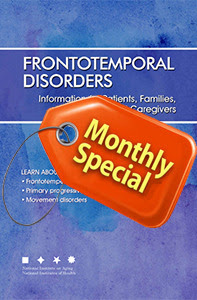By Susan Mitchell, PhD; Leo Christie, PhD; Gina Ulery, MS
 As a speech-language professional, what’s the first medical error that comes to mind when you think of a critical incident? Most likely, not a hernia operation. The Agency for Healthcare Research and Quality (AHRQ), U.S. Department of Health and Human Services, documented the following case of a routine hernia surgery resulting in a TIA, aspiration and ultimately death:
As a speech-language professional, what’s the first medical error that comes to mind when you think of a critical incident? Most likely, not a hernia operation. The Agency for Healthcare Research and Quality (AHRQ), U.S. Department of Health and Human Services, documented the following case of a routine hernia surgery resulting in a TIA, aspiration and ultimately death:
An elderly man, post hernia surgery, had a transient ischemic attack (TIA) and respiratory difficulties. His speech prior to surgery had been normal but was now slurred. He was also choking on thin liquids. The neurologist examined the patient and recommended a swallowing study. A speech-language pathologist (SLP) evaluated the patient, found him to be at high risk for aspiration, and completed a consultation form recommending NPO status. However, the physician did not see the form, and the patient continued to receive thickened liquids. Two days later, the patient suddenly aspirated, arrested, and died.
Within one hour of the patient’s death, the hospital reviewed the case. The critical incident resulted in changes to the protocol for swallowing evaluations. As part of the updated protocol, the physician “pre-authorizes” an NPO order, and the SLP is authorized to write the NPO order if the bedside swallowing evaluation is suspicious for the risk of aspiration. However, the deadly outcome for this patient had already occurred.
The AHRQ documentation detailed a number of reasons for this tragic error. As in most medical errors, the failure cannot be attributed to a single party. In this case, the critical error had its roots in the failure of both written and verbal communication. First, the SLP did not consider the NPO recommendation important enough to contact the physician immediately, and thus she did not verbally communicate the recommendation to the physician. Second, the hospital protocol resulted in sequestering her consultation form with the NPO recommendation in a special section of the chart, not in the core daily progress notes that all physicians read regularly. Third, the physician did not read the SLP’s consultation form and act upon the recommendation.
The AHRQ commentary further notes, “Medical errors and accidents due to communication mishaps are complex and multifaceted. In this case, liability could be attributed to the physician, the speech therapist, and the nurses caring for the patient. All of them failed to communicate and/or receive critical medical information, and their failure led to the patient’s aspiration. This means that we need to be careful that, after an accident investigation or root-cause analysis, we don’t design protocols that prevent only the specific error from happening again. In this case, an NPO order was the problem, but the root cause analysis revealed general problems with communication. The chance that another patient will die due to lack of a timely NPO order is relatively small.
However, the chance that problems in inter-professional communication will cause other adverse events is high. The institution needs to make sure it does something about the latter, not just the former.”
The Joint Commission Safety Goals include a number of recommended steps to prevent error. Of these, “to improve the effectiveness of caregiver communication” is the one identified by ASHA (2010a) in its website publication, Patient Safety and the SLP (http://www.asha.org/slp/PatientSafety.htm), as the one that affects SLPs and audiologists the most. “This goal requires implementing a process of verifying verbal or telephone orders by having the individual receiving the order read it back.”
Virtually all of the consumers (96%) said hospitals should be required to report medical errors to state health departments. Currently most states (including Florida) do not disclose facility-specific information to the public about mistakes. Yet 82% want each hospital’s medical error record to be available to the public. According to a study in Health Affairs (Classsen et al., 2011), hospital errors are more common than suspected…ten times more common. Medical errors and other adverse events occur in one-third of hospital admissions according to the authors. The more you look for errors, the more you will find.

2-Hour Online CE Course
Preventing Medical Errors in Speech-Language Pathology is a 2-hour online continuing education (CE/CEU) course that addresses the impact of medical errors on today’s healthcare with a focus on root cause analysis, error reduction and prevention, and patient safety. Multiple scenarios of real and potential errors in the practice of speech-language pathology are included, along with recommended strategies for preventing them. Evidence shows that the most effective error prevention occurs when a partnership exists among care facilities, health care professionals, and the patients they treat. Suggested strategies for preventing errors address all three elements: (1) models for changing the culture in care facilities, (2) lifelong learning for SLPs that is focused on ethical, evidence-based, culturally competent practice and (3) tools for educating and empowering patients. * This course satisfies the medical errors requirement for biennial relicensure of Florida speech-language pathologists and audiologists. Course #20-77 | 2013 | 35 pages | 15 posttest questions
This online course provides instant access to the course materials (PDF download) and CE test. After enrolling, click on My Account and scroll down to My Active Courses. From here you’ll see links to download/print the course materials and take the CE test (you can print the test to mark your answers on it while reading the course document).
Successful completion of the online CE test (80% required to pass, 3 chances to take) and course evaluation are required to earn a certificate of completion. Click here to learn more.
Professional Development Resources is approved by the Continuing Education Board of the American Speech-Language-Hearing Association (ASHA Provider #AAUM) to provide continuing education activities in speech-language pathology and audiology. Professional Development Resources is also approved by the Florida Board of Speech-Language Pathology and Audiology (Provider #50-1635) and the Ohio Board of Speech-Language Pathology and Audiology and is CE Broker compliant (all courses are reported within 1 week of completion).
Like this:
Like Loading...
 October is Domestic Violence Awareness Month, a time to raise awareness on the effects of child abuse and intimate partner violence (an issue that impacts 1 in 4 women). The essential paradox of family violence is that – while it affects so many individuals so adversely in all sectors of society – it is only minimally discussed because of the stigma and is poorly understood and confronted by the legal, professional, and social systems that are responsible for protecting and treating victims.
October is Domestic Violence Awareness Month, a time to raise awareness on the effects of child abuse and intimate partner violence (an issue that impacts 1 in 4 women). The essential paradox of family violence is that – while it affects so many individuals so adversely in all sectors of society – it is only minimally discussed because of the stigma and is poorly understood and confronted by the legal, professional, and social systems that are responsible for protecting and treating victims. Professional Development Resources is approved to offer continuing education (CE/CEU) credit for this course by the American Psychological Association (APA); the National Board of Certified Counselors (NBCC ACEP #5590); the Association of Social Work Boards (ASWB Provider #1046, ACE Program); the American Occupational Therapy Association (AOTA Provider #3159); the Commission on Dietetic Registration (CDR Provider #PR001); the Alabama State Board of Occupational Therapy; the Florida Boards of Social Work, Mental Health Counseling and Marriage and Family Therapy (#BAP346), Psychology & School Psychology (#50-1635), Dietetics & Nutrition (#50-1635), and Occupational Therapy Practice (#34); the Ohio Counselor, Social Worker & MFT Board (#RCST100501); the South Carolina Board of Professional Counselors & MFTs (#193); and the Texas Board of Examiners of Marriage & Family Therapists (#114) and State Board of Social Worker Examiners (#5678).
Professional Development Resources is approved to offer continuing education (CE/CEU) credit for this course by the American Psychological Association (APA); the National Board of Certified Counselors (NBCC ACEP #5590); the Association of Social Work Boards (ASWB Provider #1046, ACE Program); the American Occupational Therapy Association (AOTA Provider #3159); the Commission on Dietetic Registration (CDR Provider #PR001); the Alabama State Board of Occupational Therapy; the Florida Boards of Social Work, Mental Health Counseling and Marriage and Family Therapy (#BAP346), Psychology & School Psychology (#50-1635), Dietetics & Nutrition (#50-1635), and Occupational Therapy Practice (#34); the Ohio Counselor, Social Worker & MFT Board (#RCST100501); the South Carolina Board of Professional Counselors & MFTs (#193); and the Texas Board of Examiners of Marriage & Family Therapists (#114) and State Board of Social Worker Examiners (#5678).















